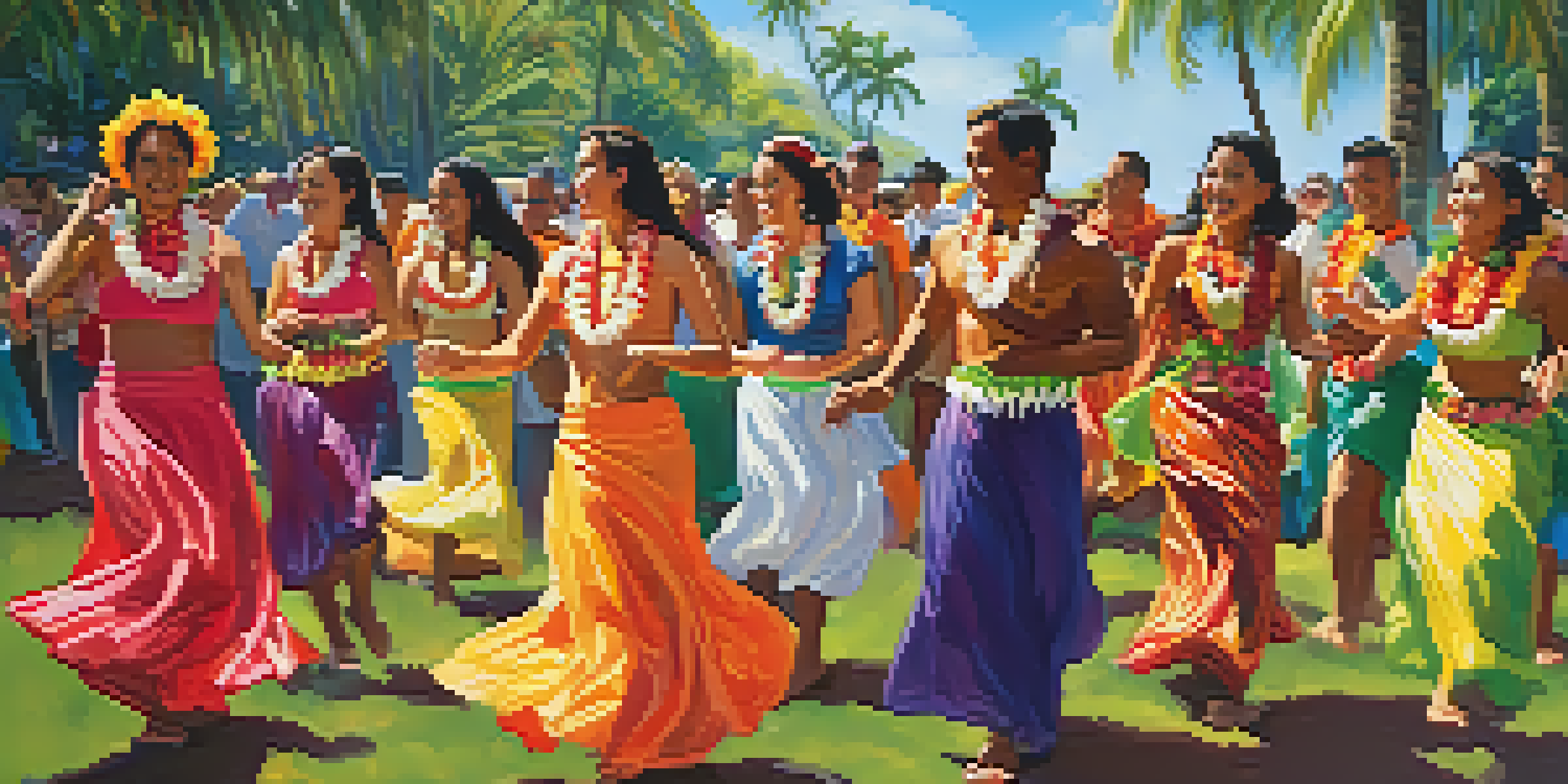The History and Evolution of Hawaiian Festivals of Aloha

Origins of Hawaiian Festivals: A Cultural Foundation
Hawaiian festivals have deep roots in the islands' rich cultural heritage, influenced by ancient traditions and the natural environment. The original festivals were tied to agriculture, honoring the gods and the land, ensuring bountiful harvests. For example, the Makahiki festival celebrated the god Lono, marking a time for rest, games, and feasting. These early celebrations laid the groundwork for the vibrant festivities we see today, emphasizing community, respect for nature, and spirituality.
The Influence of Missionaries and Western Culture
In the 19th century, the arrival of missionaries brought significant changes to Hawaiian culture, including the introduction of Western-style celebrations. While some traditional practices were suppressed, others adapted and evolved, merging Hawaiian customs with Western influences. This blend can be seen in festivals that incorporated Christian elements alongside traditional Hawaiian practices. As a result, the festivals began to reflect a more diverse cultural identity, welcoming different traditions while maintaining a connection to their roots.
Cultural Roots of Hawaiian Festivals
Hawaiian festivals originate from ancient traditions that honor agriculture, community, and spirituality.
Revival of Hawaiian Traditions in the 20th Century
The 20th century marked a pivotal moment for Hawaiian festivals as there was a resurgence of interest in native culture and traditions. Events like the Merrie Monarch Festival emerged, celebrating hula and Hawaiian music, and showcasing the islands' unique cultural identity. This revival helped to instill pride among Hawaiians, reconnecting them with their ancestral heritage. The renewed appreciation for traditional practices also opened the door for more festivals that highlighted various aspects of Hawaiian culture.
Modern Festivals: A Celebration of Diversity
Today, Hawaiian festivals of Aloha are vibrant celebrations that reflect the islands' diversity and rich history. Events such as the Aloha Festivals celebrate Hawaiian culture through music, dance, and arts, attracting locals and tourists alike. These festivals not only honor Hawaiian traditions but also embrace the multicultural influences that have shaped the islands. Each festival serves as a reminder of the importance of community, unity, and the spirit of Aloha in today's world.
Modern Festivals Embrace Diversity
Today's Hawaiian festivals celebrate a blend of traditional practices and multicultural influences, reflecting the islands' rich history.
The Role of Aloha Spirit in Festivals
At the heart of Hawaiian festivals is the Aloha Spirit, a concept that embodies love, compassion, and mutual respect. This philosophy is integral to every celebration, fostering connections among participants and attendees. The Aloha Spirit encourages everyone to engage in the festivities with an open heart, creating a welcoming environment. As people share in the joy of the festivals, they also learn about the values and traditions that define Hawaiian culture.
Environmental Awareness in Hawaiian Festivals
In recent years, many Hawaiian festivals have placed a strong emphasis on environmental sustainability. Organizers are increasingly incorporating eco-friendly practices, like reducing waste and promoting local products. For instance, festivals often feature locally sourced food, emphasizing the importance of supporting local farmers and businesses. This commitment to sustainability not only enhances the festival experience but also reflects a deep respect for the land and the culture that it nurtures.
Sustainability and Technology in Focus
Contemporary Hawaiian festivals prioritize environmental sustainability while integrating technology to enhance participation and reach.
Impact of Technology on Hawaiian Festivals
With the rise of technology, Hawaiian festivals have adapted to include digital elements that enhance the experience for attendees. Social media platforms allow for broader engagement, sharing the beauty and spirit of these celebrations with a global audience. Live streaming and virtual participation have also made it easier for those unable to attend in person to experience the festivities. This blend of tradition and technology ensures that Hawaiian festivals remain relevant and accessible to future generations.
Looking Forward: The Future of Hawaiian Festivals
As we look to the future, Hawaiian festivals of Aloha are poised to continue evolving while preserving their cultural significance. There is a strong desire among communities to maintain the traditions that define their heritage while welcoming new influences. By fostering a spirit of inclusivity and innovation, these festivals can thrive and adapt to the changing times. Ultimately, the enduring legacy of Hawaiian festivals will be their ability to unite people in celebration, honoring the past while embracing the future.